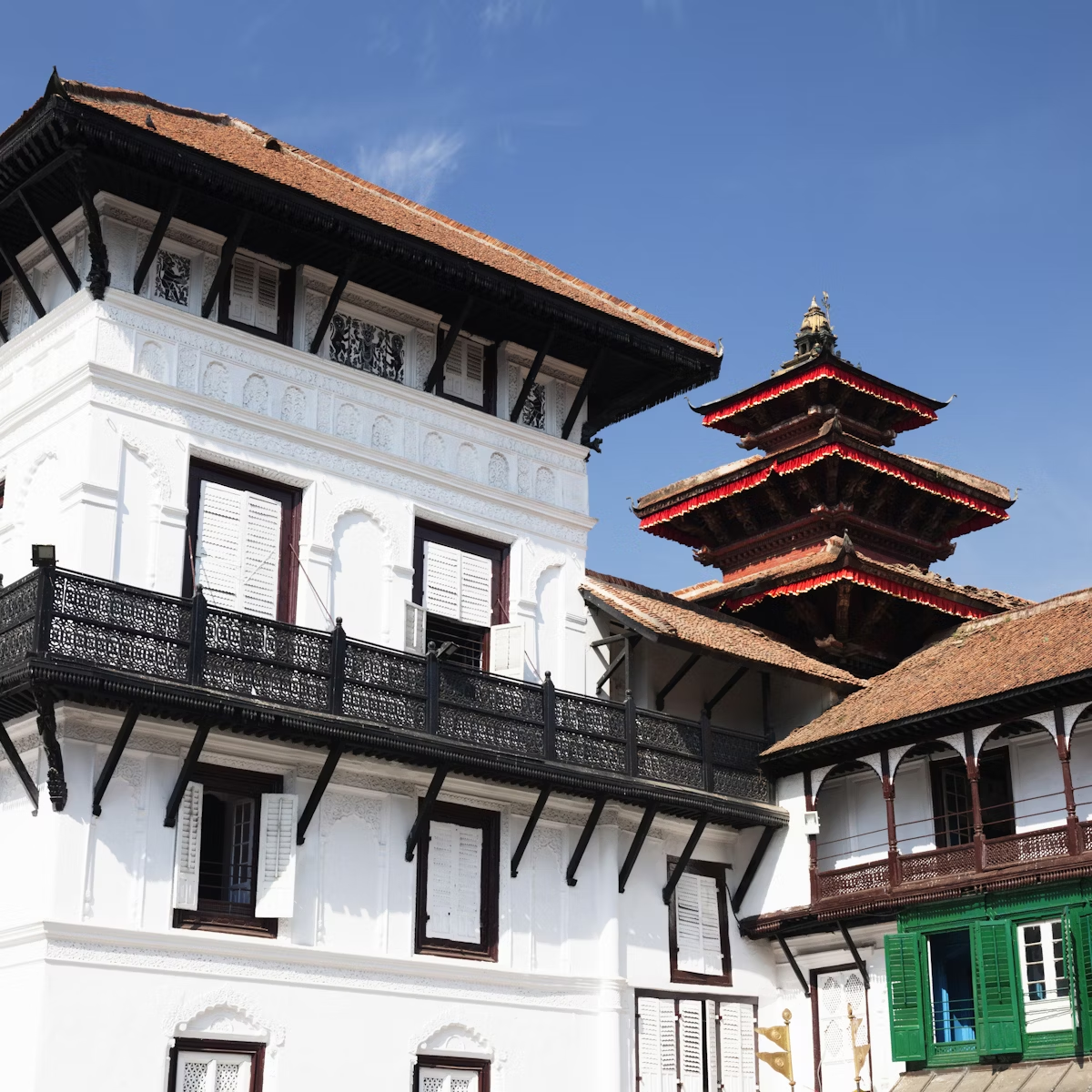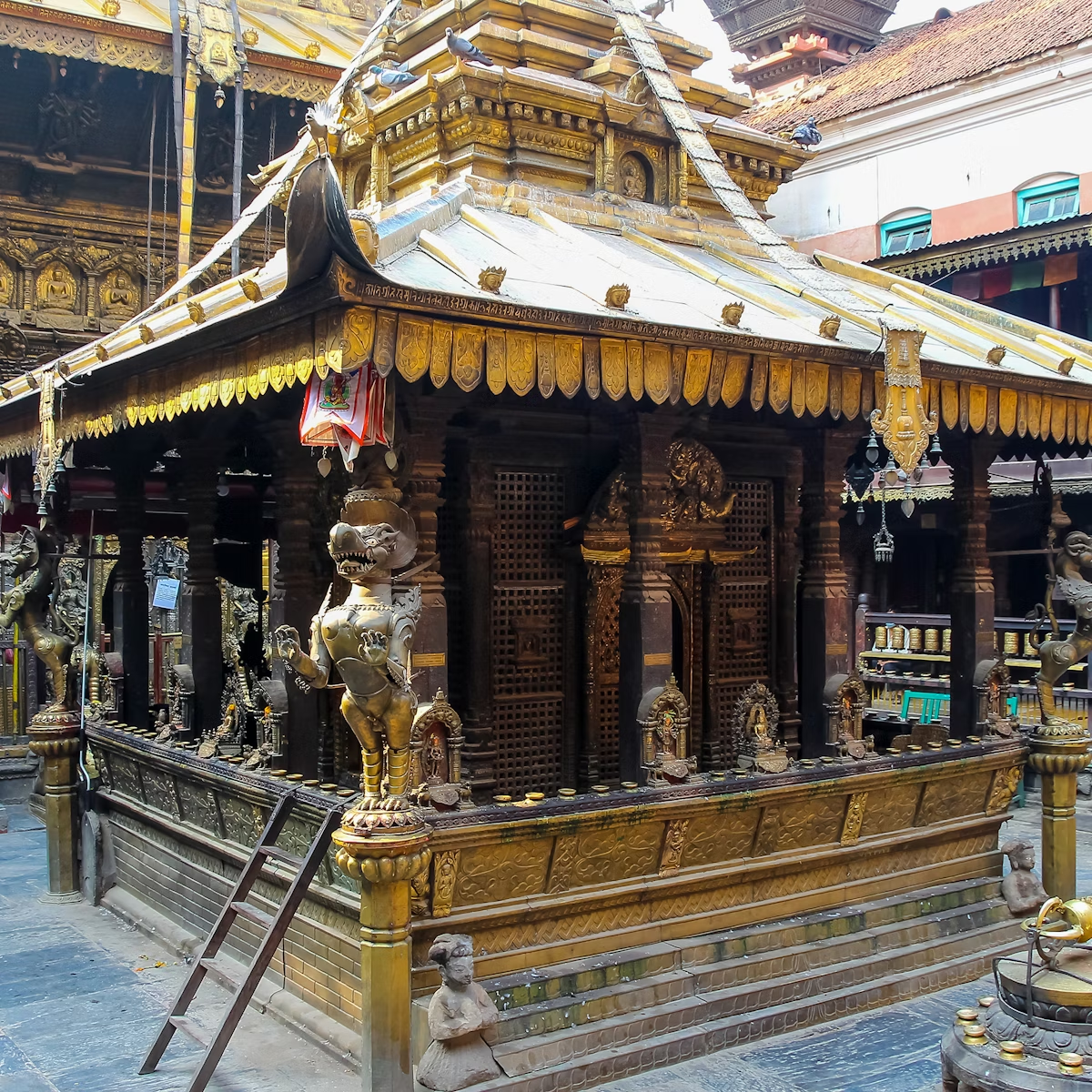Budhanilkantha's focal point for devotions is a large reclining statue of Vishnu as Narayan, the creator of all life. From his navel grew a lotus and from the lotus came Brahma, who in turn created the world. The 5m-long Licchavi-style image was created in the 7th or 8th century from one piece of black stone and hauled here from outside the valley by devotees. It’s one of the most impressive pieces of sculpture in Nepal, and that’s saying something!
Only Hindus can approach the statue to leave offerings of fruit and flower garlands, but visitors can view the statue through the fence that surrounds the sacred tank. Narayan slumbers peacefully on the knotted coils of Ananta (or Shesha), the 11-headed snake god who symbolises eternity. In each hand, Narayan holds one of the four symbols of Vishnu: a chakra disc (representing the mind), a conch shell (the four elements), a mace (primeval knowledge) and a lotus seed (the moving universe).
Vaishnavism (the worship of Vishnu) was the main sect of Hinduism in Nepal until the early Malla period, when Shiva became the most popular deity. The Malla king Jayasthithi is credited with reviving the Vishnu cult by claiming to be the latest incarnation of this oft-incarnated god. Every subsequent king of Nepal has made the same claim, and because of this they are forbidden, on pain of death, from seeing the image at Budhanilkantha.
Vishnu is supposed to sleep through the four monsoon months and a great festival takes place at Budhanilkantha for Haribodhini Ekadashi – the 11th day of the Hindu month of Kartik (October/November) – when Vishnu is said to awaken from his annual slumber.








